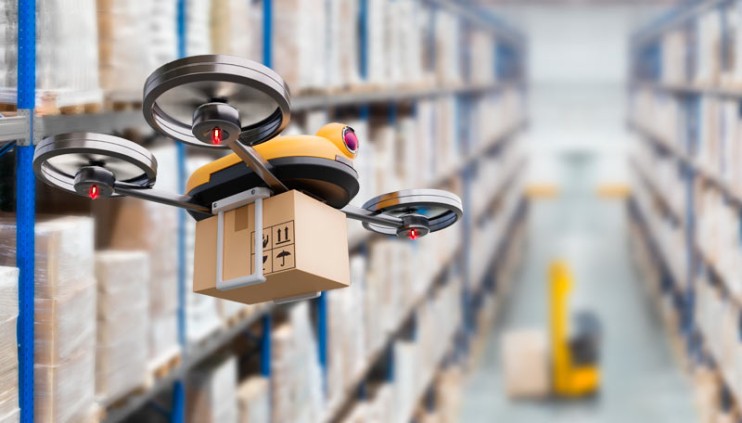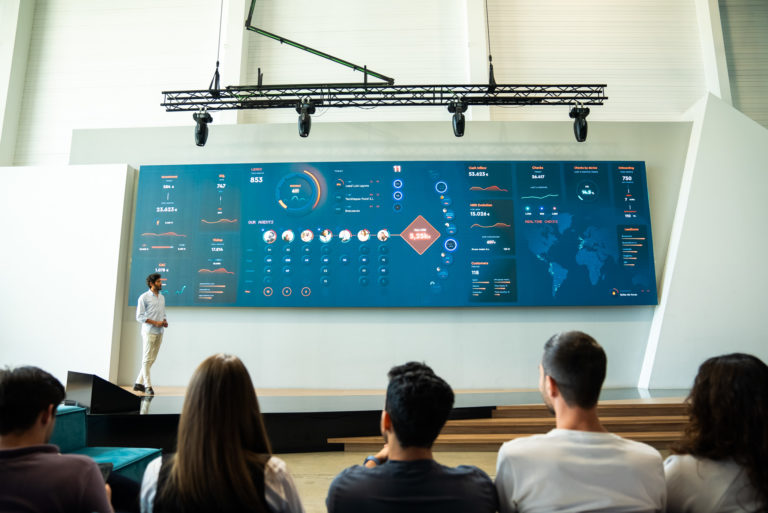Digitization of logistics

The logistics sector has evolved a great deal in recent years, and is now in the Logistics 4.0 model, where new technologies and digitization play a leading role. Now the supply chain, more intelligent and interconnected than ever, responds to the new demands of the market: flexibility, immediacy, globalization, technology, sustainability… And, at the heart of this revolution: data.
We are facing a paradigm where data generation is such that we cannot ignore it when making decisions and managing our processes. If there is one thing that characterizes logistics 4.0, it is to increase the efficiency and performance of each stage of the supply chain. To achieve this, technology and data will be our greatest allies.
Just as the term Big Data was a great unknown just a few decades ago, the same is true in the logistics sector with terms such as:
- Lean Manufacturing: minimize losses in the manufacturing process and use only the essential resources.
- Agile project management: agile project management characterized by speed and flexibility in the processes.
- Green logistics: adapting the way logistics is organized to a sustainable economic model.
- IOT (Internet of Things): interconnection of everyday objects to the Internet.
- Autonomous trucks: operate in self-driving mode, with their basic functions being autonomous.
- AI: attempt to imitate human intelligence through a robot or software.
Any logistics professional should know these terms and master them in order not to be left behind. It seems obvious, doesn’t it? Well, today there are two types of companies: those that see an opportunity in the digitization of logistics and a challenge to invest in technology, and those that prefer to leave things as they are and experience the loss of competitiveness and, therefore, of customers. It’s all a matter of adapt or die. The logistics sector is moving at 300km/h and turning our backs on the new paradigm is not an option.
And this is where DATA plays a fundamental role. Because the core of any logistics company is to know how to answer questions such as: How can I optimize the use of fuel? How can I reduce my delivery times? How can I be more efficient in the management of resources? How can I deliver my product to the customer in less time, while maintaining quality?
Neither intuition nor a magic wand has the answer. It is the data we generate that will give us an objective and unbiased answer. This is what it means to be a Data Driven company, a company that converts information into knowledge.
Once we have asked ourselves the right questions, we move on to the next phase: how we want to consume the information. For that, we have to know how to answer the following questions: What time do I need that information? Where am I going to see it? Where do I get it from?
This last question is the one that will lead us to the most important process of all: finding the technology that will give us a reasoned answer. Does my fleet need GPS vehicles? Do I need to track my materials from the time they leave the supplier’s warehouse until they reach the assembly line? Do I need alert systems to detect non-compliance with customer delivery deadlines? How do I build algorithms that detect consumption patterns? What software allows me to detect optimal routes? And so on and so forth.
Implementing a data-driven digital transformation process is not easy; however, logistics digitization is necessary to make efficient business decisions, predict behaviors, anticipate unforeseen events, reduce costs and, ultimately, improve the customer’s shopping experience. Don’t be one of those who settle.



